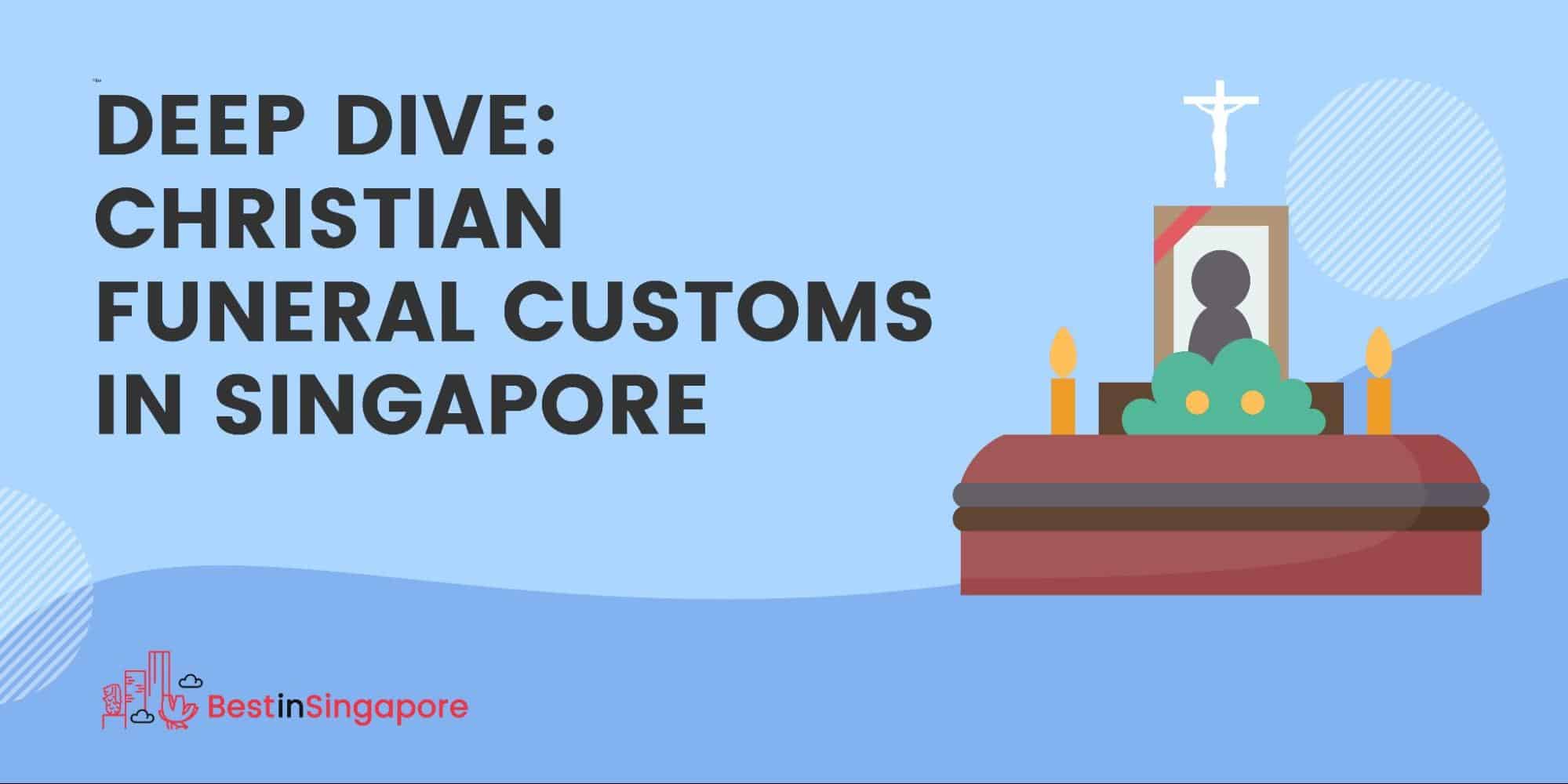Deep Dive: Christian Funeral Customs in Singapore
Christians constitute about 19 percent of Singapore’s population. Hence, it’s safe to assume that the chances of you being invited to a Christian event, whether it’s a baptism or funeral, are relatively high.
Even if you don’t share the same beliefs, it would be helpful to know a few things about Christian rituals before an event.
For this guide, we’ll be talking all about Christian funeral customs in Singapore, including some notes on their beliefs about death.
A General Overview of Christian Funerals
In Singapore, many Chistians, especially those of Chinese ethnicity, aren’t actually raised Christian.
Because of this, it’s fairly common to see Christians observing some other cultural practices during occasions like funerals.
For instance, some Chinese Christian families still choose to light incense to honor the deceased while other families do not.
There are also some Chinese Christian families that believe that removing mirrors would avoid bad luck if the wake is held at home (a belief more associated with Taoist or Chinese culture).
Giving of bereavement money or “pek kim” is still generally practised too, despite it largely being a Chinese funeral custom.
Ultimately, it will be up to the family of the deceased to decide how they want to hold the funeral, and to what extent they’ll be observing local cultural practices.
Generally, Christian funerals are fairly simple. There are no elaborate rituals involved in body preparation, burial, and everything in between.
In some Christian denominations, families call a pastor to visit the ill or dying person to pray and recite the scripture. When someone has passed, the family begins making funeral arrangements, starting with the body’s transfer to the morgue.
Once the body is embalmed, the body is placed in a coffin, dressed in simple white or black clothing.
Just like with other religions, Christian wakes are also typically held at HDB void decks or funeral homes, lasting for 3 to 7 days on average before the burial or cremation. Wakes are normally decorated with white drapes, flowers, and a crucifix to symbolise peace and purity.
During the wake, the family’s trusted pastor or priest will lead a memorial service, which includes singing hymns, praying, reading scriptures from the bible, among others.
Another memorial service will be held on the day of the funeral right before the deceased is cremated or buried. It’s also during the final memorial service where family members and friends give their eulogy.
Behind Christian Beliefs about Death and the Customs around It
Christians hold very strong beliefs about death. Death marks the moment when one’s soul transitions to the afterlife, where they may end up in heaven or hell.
In essence, it’s believed that people who lived righteous lives would proceed to heaven to be reunited with God. On the other hand, the wicked ones who have not repented their sins would be cast away to hell.
As simple as it may sound, there are still other things that influence how Christians view death and beyond such as the ones below.
Heaven, Hell, and Purgatory
For Christians, heaven and hell are two distinct places where souls go to in the afterlife.
Traditionally, heaven is depicted as the location where God resides, along with Jesus Christ, angels, and other righteous people who have died. In the Christian Bible, heaven is described to be a place where there is no sadness, pain, and death, as described in this biblical verse:
“He will wipe away every tear from their eyes. Death will no longer exist; grief, crying, and pain will exist no longer, because the previous things have passed away.” - Revelation 21:4
Meanwhile, hell is traditionally described as a place of eternal fire full of pain and suffering. It’s seen as the ultimate form of punishment for those who chose to live sinful lives without any form of repentance.
Some Christian denominations including Roman Catholicism and Orthodox Christianity believe in purgatory, which is the state where souls are purified before proceeding to heaven.
For this reason, some families hold nightly vigils throughout the wake since it’s believed that praying will shorten one’s time in purgatory.
Day of Judgement
Simply put, the Day of Judgment is the day when all people, living and dead, will be judged by God for their behaviour on earth. Depending on how one has lived their life, they may be reunited in heaven with God or be sent to hell for eternity.
Some Christians consider death to be their Day of Judgment while other Christians believe that this day will come at the end of time where everyone would be judged as deduced from this biblical verse:
“The time has come,” he said. “The kingdom of God has come near. Repent and believe the good news!” - Mark 1:15
There are also others who believe that judgment will happen twice, namely at the time of one’s death and at the end of time.
This is why prayers and memorial services focus on repentance. It’s also for this reason that family members normally ask guests to pray for the soul of the departed, for God to forgive their sins.
Resurrection
One of Christianity’s most important figures is Jesus Christ, who is believed to be crucified on the cross for mankind’s sins.
Following his death, it’s said that Jesus was raised from the dead and resurrected to heaven, instilling the belief that those who believe in him will also triumph over death and sin.
A crucifix serves as a reminder for this belief, which is why this symbol is uncommon to find in funerals, tombstones, and urns. You’ll also often hear this biblical verse being said during the memorial service:
“Jesus said to her, “I am the resurrection and the life. Whoever believes in me, though he die, yet shall he live, and everyone who lives and believes in me shall never die. Do you believe this?” - John 11:25-26


